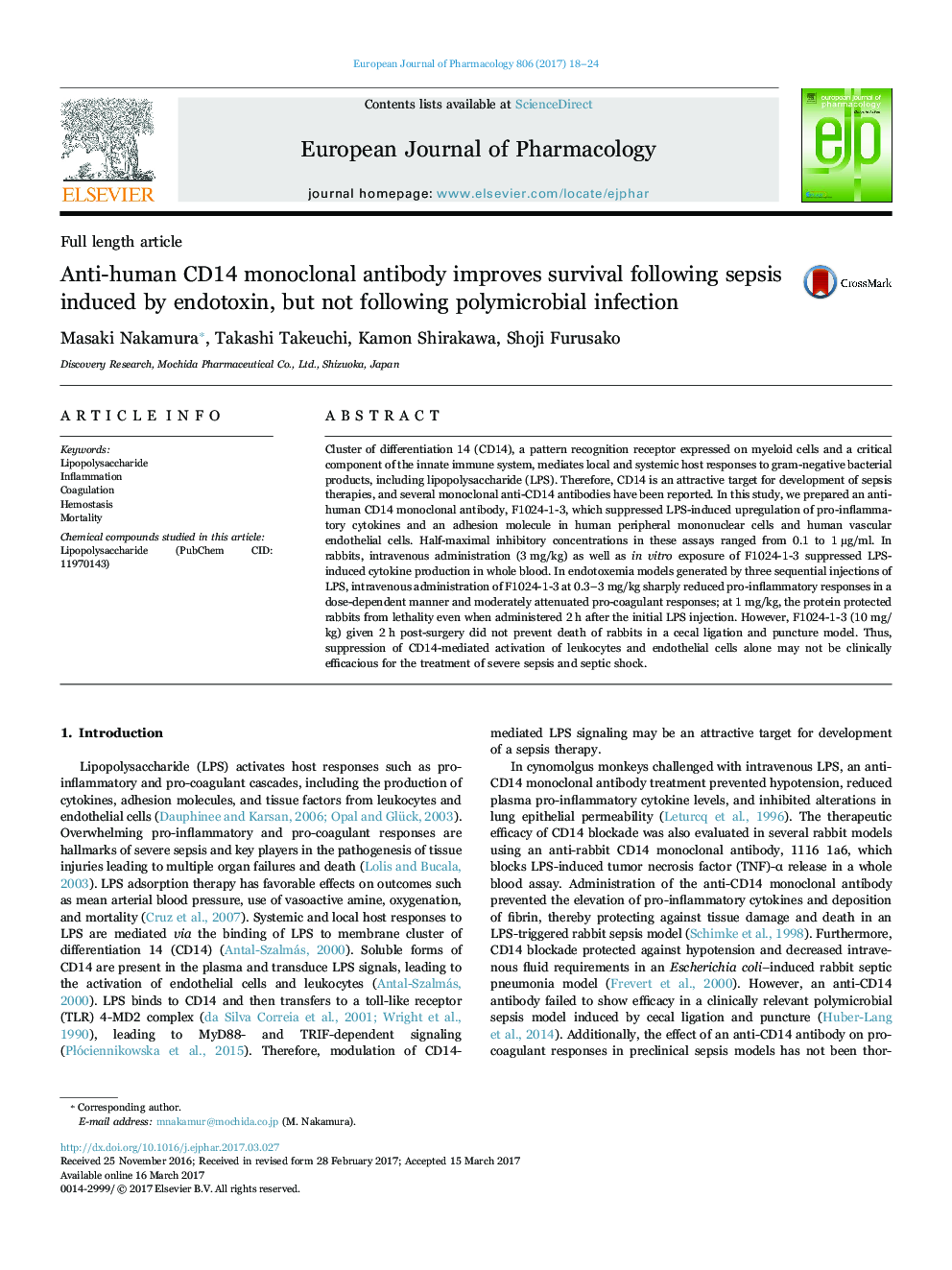| Article ID | Journal | Published Year | Pages | File Type |
|---|---|---|---|---|
| 5554665 | European Journal of Pharmacology | 2017 | 7 Pages |
Cluster of differentiation 14 (CD14), a pattern recognition receptor expressed on myeloid cells and a critical component of the innate immune system, mediates local and systemic host responses to gram-negative bacterial products, including lipopolysaccharide (LPS). Therefore, CD14 is an attractive target for development of sepsis therapies, and several monoclonal anti-CD14 antibodies have been reported. In this study, we prepared an anti-human CD14 monoclonal antibody, F1024-1-3, which suppressed LPS-induced upregulation of pro-inflammatory cytokines and an adhesion molecule in human peripheral mononuclear cells and human vascular endothelial cells. Half-maximal inhibitory concentrations in these assays ranged from 0.1 to 1 μg/ml. In rabbits, intravenous administration (3 mg/kg) as well as in vitro exposure of F1024-1-3 suppressed LPS-induced cytokine production in whole blood. In endotoxemia models generated by three sequential injections of LPS, intravenous administration of F1024-1-3 at 0.3-3 mg/kg sharply reduced pro-inflammatory responses in a dose-dependent manner and moderately attenuated pro-coagulant responses; at 1 mg/kg, the protein protected rabbits from lethality even when administered 2 h after the initial LPS injection. However, F1024-1-3 (10 mg/kg) given 2 h post-surgery did not prevent death of rabbits in a cecal ligation and puncture model. Thus, suppression of CD14-mediated activation of leukocytes and endothelial cells alone may not be clinically efficacious for the treatment of severe sepsis and septic shock.
